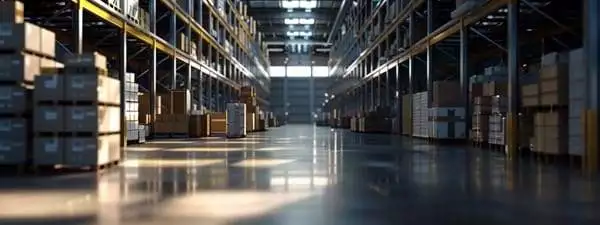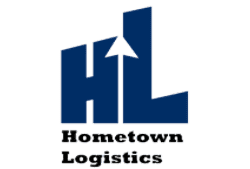In the realm of logistics, where efficiency and connectivity are paramount, the influence of the internet cannot be overstated. Yet, many companies find their digital presence stuck in the slow lane. This article draws a direct line between expertly crafted website design for logistics companies and enhanced business performance. It hones in on the necessity of tailored online solutions that meet the specific demands of transport and warehouse operations. Readers will discover the advantages of choosing custom website designs over templates and explore essential features that streamline user experience. Additionally, we’ll navigate the process of creating a custom logistics website, review real-world successes, and provide insights on selecting a proficient web design partner. For logistics businesses looking to gain an edge, this piece promises actionable advice to drive meaningful improvements in their online endeavors.
Key Takeaways
- Custom website design in logistics enhances efficiency and client engagement
- Regular maintenance and SEO are crucial for maximizing website ROI
- Tailored websites adapt to logistics demands, ensuring scalability and flexibility
- Collaborating with experienced designers ensures industry-specific website functionality
- Performance metrics guide strategic decisions for continuous website optimization
Understanding the Unique Needs of Logistics Businesses

In the vibrant field of logistics, websites serve as critical platforms for managing data and engaging with clients. Custom website design targets unique challenges such as streamlining customs procedures and integrating advanced technology. Logistics companies must present a user-friendly online presence that meets client expectations for efficiency and accessibility. The subsequent sections will dissect the role websites play in the logistics sector, the digital hurdles logistics companies face, and the essential attributes clients seek in a logistics website.
The Role of Websites in the Logistics Sector
In the logistics industry, a website functions as the digital landing page for all client interactions, often providing the first impression of a company’s ability to manage cargo efficiently and effectively. These digital platforms must incorporate cutting-edge features like artificial intelligence to optimize delivery routes and predict possible delays, enhancing the overall customer experience.
Moreover, logistics businesses rely on their websites not only for marketing purposes but also as critical nodes in their supply chain management systems. An intuitive, well-designed website allows for real-time tracking and seamless data exchange, ensuring that both the logistics provider and their clients stay informed about the status of their freight at all times.
Challenges Faced by Logistics Companies Online
Logistics companies face significant online challenges in maintaining efficient fleet management and accurate demand forecasting due to the complexity and variability of global supply chains. Websites need to offer sophisticated tools that can handle the intricate web of transportation options, inventory management, and cross-border regulations. These tools should facilitate precision in supply chain operations, allowing logistics businesses to better predict and manage the flow of goods.
The integration of the Internet of Things (IoT) into logistics company platforms presents another critical challenge, demanding high-level technical solutions that ensure a seamless connection of devices and vehicles. This necessitates robust website design that can reliably process and analyze large volumes of data from sensors and trackers in real time, improving operational efficiency and delivering actionable insights:
- Effective data analysis for fleet optimization and route management
- Enhanced visibility in supply chain processes for proactive issue resolution
- User-friendly interfaces for real-time tracking and monitoring
What Clients Expect From a Logistics Website
Client expectations from a logistics website revolve around the seamless integration of digital transformation and sustainability into their supply chain management. They anticipate a platform that exemplifies efficiency in operations, offering robust scenario planning tools to navigate complex logistics landscapes. This represents a pivotal aspect of customer satisfaction, as clients seek assurance in a logistics partner’s ability to adapt to dynamic market demands while maintaining a commitment to eco-friendly practices.
In response to the evolving digital landscape, clients also demand a logistics website to provide transparent, real-time information on cargo status and location. They value a user experience that bridges the gap between traditional logistics services and the modern digital era, prioritizing efficiency and constant accessibility. With such capabilities, logistics businesses can foster trust and build enduring client relationships in an industry where timely and accurate delivery is paramount.
Benefits of Custom Website Design for Logistics Companies

Custom website design for logistics businesses offers substantial benefits by addressing key operational aspects including improving user experience for clients and partners, streamlining operations with tailored functionalities, and enhancing brand image and credibility. By integrating cost-effective solutions and automated features, such platforms refine the efficiency of vehicle tracking and information management in response to client demands. The forthcoming sections will elucidate how custom web solutions facilitate these enhancements, further detailing their impact on logistics companies.
Improving User Experience for Clients and Partners
Custom website design in logistics is pivotal in diminishing risk and enhancing user experience. A tailored online platform ensures that clients and partners can effortlessly manage, track, and receive updates on their goods, fostering a serene and reliable experience. By prioritizing these needs through design, an organization can significantly reduce the complexities associated with logistics operations.
The user experience is further refined through custom websites that adapt to the diverse requirements of clients and partners. Features such as personalized dashboards and intuitive navigation structures enable users to access vital information and tools swiftly, which in turn streamlines the process of shipping and managing goods. These thoughtful details cement the organization’s commitment to providing a seamless experience.
- Ease of managing and tracking goods
- Reliable real-time updates
- Personalized user dashboards
- Swift access to essential tools and information
Streamlining Operations With Tailored Functionalities
Custom website design provides logistics companies with essential tailored functionalities that streamline operations, particularly in “last mile” delivery, which is a critical phase in supply chain management. By implementing advanced routing algorithms via custom web solutions, businesses optimize their delivery routes, saving time and reducing costs. This adjustment significantly enhances customer service, as clients receive their packages promptly and without unnecessary delays.
Moreover, a custom-designed website is a valuable asset for logistics firms, allowing them to integrate their supply chain management systems directly into their web interfaces. This integration empowers businesses to manage their assets more effectively and make informed decisions based on real-time data. This proactive approach to operations minimizes potential disruptions and facilitates the agility needed in today’s fast-paced logistics environments:
- Optimization of “last mile” delivery
- Implementing advanced routing algorithms
- Integrating supply chain management
- Enhancing real-time decision making
Enhancing Brand Image and Credibility
Integrating a mobile app into a logistics company’s offerings can substantially bolster its brand’s image and credibility. This modern touchpoint reflects the company’s commitment to innovation, providing customers with convenience and control over order fulfillment processes. By offering such advancements, logistics businesses affirm their status as forward-thinking industry leaders dedicated to user empowerment and satisfaction.
Moreover, leveraging analytics in a custom website design enhances the trust clients place in a logistics firm. Through real-time data and insights, customers gain visibility into their supply chains, reinforcing the brand’s promise of transparency and reliability. When a company invests in sophisticated web solutions that deliver clear, actionable data, it demonstrates an unwavering dedication to excellence and efficiency in its services.
Key Features to Include in a Logistics Company Website

In today’s competitive logistics sector, optimizing websites with the right features is an investment in infrastructure that yields substantial dividends. Essential website enhancements include a mobile-friendly design for round-the-clock accessibility, real-time tracking for up-to-the-minute updates, secure online booking systems for streamlined documentation, and integration with logistics management systems to monitor inventory and reduce carbon footprint. Research and thoughtful implementation of these components are the keystones of an efficient logistics website.
Mobile-Friendly Design for Accessibility
A mobile-friendly design is a critical strategy for logistics service providers looking to improve access and usability for clients on the go. Enabling users to swiftly manage freight from their mobile devices, a responsive website ensures uninterrupted connectivity to the provider’s database and operational updates, thereby promoting a higher level of service accessibility.
For logistics businesses, implementing a mobile-optimized interface supports clients in making timely decisions and actions. This essential feature empowers clients to enable tracking, scheduling, and managing shipments with ease, transforming their mobile device into a powerful logistic management tool and offering a competitive advantage to the service provider.
Real-Time Tracking and Updates
Real-time tracking technology is an indispensable feature for logistics companies, as it provides clients with instant visibility into the status of their shipments, whether they are a single-box delivery or a full pallet load. This optimization of information flow not only enhances fulfillment processes but also helps to address environmental concerns by enabling more efficient route planning, resulting in reduced fuel consumption and lower emissions. Consequently, an environmentally friendly approach is achieved alongside customer satisfaction, setting a standard for responsible logistics practice.
To maintain a competitive edge, logistics businesses must integrate real-time updates directly into their website design, providing a transparent and immediate flow of data regarding shipment locations and expected delivery times. This level of visibility is vital for businesses that depend on precise scheduling and inventory management, ensuring that operational decisions are informed and proactive, rather than reactive. Through these updates, logistics providers empower their clients with the tools needed for meticulous and efficient supply chain management.
- Up-to-the-minute location tracking for shipments
- Accurate prediction of delivery timings
- Inventory management support through live data insights
Secure Online Booking and Documentation
For logistics companies, incorporating secure online booking and documentation is a cornerstone of efficient customer service. By leveraging advanced software tools, firms can offer cost-effective, secure options for clients to book shipments and manage documents online. This automation not only boosts productivity but also positions a logistics company as a savvy, modern service provider in a market that highly values technological adeptness and security.
Online booking systems enhanced with price simulation capabilities provide clients with the autonomy to plan and budget their logistics needs effectively. The usage of simulation tools within these platforms affords clients a clear understanding of costs, route options, and the potential environmental impact of their shipping choices. The integration of learning algorithms can constantly refine the software’s accuracy, making it a more powerful tool for decision-making:
- Advanced simulation for accurate price forecasting
- Learning algorithms for continuous improvement of software precision
- High-level encryption for secure document handling
Integration With Logistics Management Systems
Integrating logistics management systems into custom website designs brings a blend of intelligence and efficiency to the operations of truck fleets. These advanced systems act as a digital twin of the physical logistics network, providing a dynamic and responsive framework to track and optimize the movement of goods. Such integration is instrumental in not only enhancing operational precision but also driving profit through improved decision-making and resource allocation.
The incorporation of intelligent robots and automation within these integrated systems transforms logistics by offering high-speed, error-free processing of orders and management tasks. This synergy between digital platforms and robotics streamlines the entire supply chain, from warehouse operations to the last mile delivery, significantly boosting the throughput of trucks and enhancing the profitability and competitive edge of logistics businesses.
Custom Design vs. Templates – Making the Right Choice

Choosing between custom website design and standard templates hinges on the unique needs of a logistics business. While templates offer a quick setup, they lack the specificity required for advanced project management, telematics integration, and robust asset management that logistics demand. A tailored website solution reduces uncertainty by delivering a product designed for competitive edge. This section will investigate the advantages of customization, the constraints of off-the-shelf templates, and how bespoke design affords a logistics company the necessary tools for industry leadership.
Advantages of a Tailored Website Solution
The discerning nature of designing tailored website solutions for logistics businesses caters specifically to industry-relevant needs such as transportation planning and material handling. Customization permits the incorporation of cloud computing to enhance data analysis and resource management, significantly improving the logistical workflow and strategic scalability vital for business growth.
A tailor-made approach to website design in the context of logistics also addresses complex challenges such as optimizing fuel consumption through intelligent routing. Bespoke websites are structured to adapt and scale in alignment with fluctuating operational demands, providing logistics companies with a durable and flexible digital backbone that supports long-term efficiency and cost savings.
Limitations of Standard Templates
Standard templates often lack the bespoke communication channels and resource management tools essential for logistics businesses. They might be sufficient for a courier startup but falter when scaling up to meet the demands of complex logistics operations. These templates fail to provide the robust forecasting capabilities that logistics businesses require to optimize their operations due to rigid design parameters that cannot accommodate the specialized software and computer systems logistics companies typically use.
Furthermore, standard website templates can lead to a generic online presence, undifferentiating one logistics company from another. Without the ability to reflect unique branding and service propositions, these templates stymie a logistics firm’s capacity to stand out in a crowded market. Users may find their unique needs, such as tracking a specific resource or integrating unique computer algorithms, aren’t met, leading to a subpar online experience:
- Insufficient customization for unique logistics requirements
- Generic design hinders brand differentiation
- Limited forecasting and optimization functionalities
Customization for a Competitive Edge
For logistics firms in the United States aiming to refine their system for optimal distribution and data management, customization provides an undeniable competitive edge. A tailored website solution integrates complex concepts such as real-time inventory tracking and predictive analytics, ensuring that businesses stand out in a market that rapidly responds to innovation and client-centric adaptations.
When logistics enterprises leverage custom design, they arm themselves with a digital infrastructure that is as expansive as the national distribution channels they navigate. Customization translates into a coherent system wherein every element of data management is calibrated to the unique processes and demands of the firm, reinforced by a strategic web presence that effectively communicates their concept of logistics solutions to clients.
- Development of an expansive, strategic web presence
- Custom calibration of data management systems
- Effective communication of unique logistics concepts
Steps to Develop a Custom Logistics Website

Embarking on the creation of a custom website for a logistics business necessitates meticulous planning and execution. Key steps include defining business goals and objectives, which establish a clear vision for the project. Collaboration with experienced web designers is essential in crafting interfaces that offer intuitive user experiences, leveraging predictive analytics and machine learning algorithms to enhance functionality. Rigorous testing ensures that the final product meets operational demands, paving the way for a successful launch. Each upcoming section delves into these crucial stages, providing practical insights into developing a web presence that stands out in the logistics industry.
Defining Business Goals and Objectives
Defining business goals and objectives is the cornerstone of custom website development for logistics companies. This strategic phase involves a meticulous assessment of how a logistics firm’s operations, customer service, and competitive positioning can be enhanced through digital means. By setting clear and measurable targets, such as increasing operational efficiency, boosting customer satisfaction, or expanding market reach, a logistics business lays the groundwork for a website that directly contributes to its core objectives.
During this planning stage, a logistics business must also identify specific features and capabilities that their custom website must possess to meet these goals. Whether it’s improving real-time tracking functionality or simplifying booking processes for users, aligning website functionality with business goals ensures that the final product not only serves as a digital storefront but also as a vital tool in the company’s service delivery arsenal.
Collaborating With Experienced Web Designers
Collaboration with experienced web designers is essential when developing custom logistics websites that are intuitive, user-friendly, and poised to handle the sophisticated demands of supply chain management. These specialists bring a wealth of knowledge on user interface design and functionality, ensuring that the website architecture aligns with logistics operational needs while maintaining ease of access for clients seeking information and services.
Engaging with web designers who have a track record in crafting digital solutions for the logistics industry ensures that the custom website will incorporate industry-specific features such as real-time tracking and secure document handling. Through this collaboration, logistics businesses can create a potent online platform that not only streamlines operations but also raises the standard for client interaction and service delivery in the logistics sector.
Designing User-Friendly Interfaces
Designing user-friendly interfaces for logistics websites involves creating an intuitive user experience that simplifies the complexities of supply chain management. The interface must be straightforward, with strategically placed call-to-action buttons and uncomplicated navigation to facilitate quick and easy access to vital services such as shipment tracking and scheduling.
User interfaces must also be responsive, ensuring that they adapt flawlessly to various device screens, thereby enhancing accessibility. Critical information such as real-time shipment data, booking forms, and contact details should be readily accessible, contributing to a website that supports efficient decision-making and user satisfaction:
- Intuitive navigation and prominent call-to-action buttons
- Adaptive design for different device screens
- Easy access to shipment tracking, booking, and contact information
Testing and Launching Successfully
Prior to launching a custom logistics website, rigorous testing is paramount to ensure the platform operates without fault under various scenarios, reflecting real-world usage. Such testing includes load testing to simulate high-traffic conditions, security audits to safeguard sensitive data, and user acceptance testing to confirm that the site meets precise business requirements. Rigorous testing phases demonstrate due diligence in delivery, building trust and preventing costly disruptions post-launch.
Successful launching of a logistics website goes beyond mere functionality; it encapsulates a smooth transition of the platform into daily operations. This endeavor requires comprehensive staff training to enable proficient use of the new system and strategic announcements to inform clients about the enhanced service capabilities. A meticulous launch plan with clear communication strategies ensures seamless integration and optimal utilization of the new digital tool in a logistics firm’s service repertoire.
Case Studies: Successful Custom Websites in Logistics

In the dynamic landscape of logistics, custom website design holds the key to significant transformations across various business dimensions. For Logistics Company, such innovation has been pivotal in boosting operational efficiency, allowing for streamlined processes and better resource management. leveraged custom web solutions to enhance client engagement, fostering closer relationships and improving service delivery. Further, customized online platforms have empowered businesses to expand their market reach by implementing innovative, user-centric web solutions. The ensuing case studies will illustrate how these strategies have been successfully implemented, offering valuable insights into the practical impact of tailored web design in the logistics industry.
Boosting Efficiency for Logistics Company
Logistics Company redefined efficiency by embracing custom website design, integrating advanced routing algorithms, and real-time tracking to streamline its delivery processes. The shift facilitated a leap in operational excellence, reducing transit times, and enhancing their ability to meet demanding delivery schedules, which proved critical for client retention and acquisition.
The tailored website designed for Logistics Company included intelligent dashboards that provided actionable insights, enabling smarter fleet management decisions and resource allocation. As a result, the company reported a marked improvement in supply chain visibility and a reduction in overhead costs:
- Integration of advanced routing for efficient delivery management
- Real-time tracking empowering proactive logistical decisions
- Intelligent dashboards leading to reduced overhead costs
Enhancing Client Engagement for Logistics Company
Logistics company significantly improved client engagement by implementing a custom-designed website that featured streamlined communication tools and personalized user experiences. The website allowed clients to quickly access information on shipments, seamlessly interact with customer service, and provided tailored updates, enhancing transparency and trust.
This approach led to notable benefits for logistics Company:
- Increase in repeat business due to an impressive user interface and personalized client interactions.
- Strengthened client loyalty as a result of efficient resolution of inquiries and issues.
- Improved client feedback mechanisms that informed Company B’s ongoing service enhancements.
The company’s investment in a bespoke online platform manifested in customer satisfaction scores soaring, underlining the vital role of custom website features in nurturing strong client relationships in the logistics sector.
Expanding Market Reach With Innovative Web Solutions
Logistics businesses are witnessing remarkable growth in market presence through innovative web solutions crafted to their specific needs. By deploying custom website designs with functionalities such as multilingual support and localized content, these businesses can cater to a broader demographic. The tailored approach also enables the inclusion of country-specific logistics information and compliance requirements, fostering global scalability.
Customized websites with advanced analytics and marketing integration have enabled logistics firms to understand and capture new market segments. Strategic use of data from these tools informs marketing campaigns, leading to targeted outreach and enhanced engagement efforts. Consequently, logistics companies experience a meaningful increase in their digital footprint and customer base:
- Implementation of multilingual and localized content for international reach
- Integration of analytics for targeted marketing strategies
- Scalable design accommodating diverse regulatory landscapes
Choosing the Right Web Design Partner

Selecting an adept web design partner is paramount for logistics companies aiming to develop a custom website that meets the sophisticated demands of the industry. Evaluating industry experience and expertise ensures a deep understanding of logistics needs. Reviewing portfolios and past projects offers insights into a partner’s design capabilities and potential fit for your project. Moreover, asking the right questions before hiring can unveil a partner’s ability to deliver a tailored, impactful web presence. These steps are critical for logistics businesses to ensure their website aligns with operational goals and provides a competitive advantage.
Evaluating Industry Experience and Expertise
When choosing a web design partner for a logistics business, evaluating their industry experience and expertise is crucial. A partner with a deep understanding of the logistics sector will possess the insight required to deliver a website that is not only visually engaging but also optimally structured to manage the complex operational nuances of the industry. The right partner should demonstrate a track record of delivering efficient and scalable solutions that integrate seamlessly with logistics management systems.
Experience in logistics web design translates into a website equipped with features like real-time tracking, secure document handling, and intuitive user interfaces. As an example, a knowledgeable web design partner would know to incorporate features such as advanced search filters for shipment tracking and dynamic load boards. This expertise ensures a responsive and proactive website design that enhances user experience and drives business success:
- Advanced search filters for efficient shipment tracking
- Dynamic load boards facilitating cargo management
- Scalable website architecture for growing logistics operations
Reviewing Portfolios and Past Projects
Thorough examination of a potential web design partner’s portfolio and past projects provides invaluable insights into their ability to execute custom website designs for logistics businesses. This review process highlights the partner’s proficiency in creating platforms that enhance operational efficiency and client engagement, ensuring that the end result aligns with a logistics company’s distinct digital infrastructure needs.
Evaluating previous web design projects allows logistics businesses to gauge how effectively a web design partner can tackle industry-specific challenges such as route optimization, real-time tracking, and integration with existing logistics systems. Success stories detailed in portfolios expose a partner’s capacity for innovation and their ability to deliver solutions that contribute to streamlined logistics operations:
- Documented success in route optimization systems
- Proven experience with real-time logistics tracking platforms
- Demonstrated integration with comprehensive logistics systems
Asking the Right Questions Before Hiring
Before engaging a web design partner for a logistics business, it’s essential to inquire about their specific experience in the logistics sector and their previous success stories to ensure they have the capability to deliver a robust, scalable website solution. Logistics companies should ask potential partners about their design process, how they approach challenges unique to logistics, and examples of how they’ve enhanced operational efficiency for past clients.
Another critical series of questions should revolve around the web design partner’s proficiency in incorporating real-time data analytics, shipment tracking, and mobile responsiveness into their custom solutions. Examining a partner’s ability to innovate within these functionalities confirms their capacity to create a logistics website that not only aligns with the company’s objectives but also sets new standards in customer service and operational management.
Maximizing ROI With a Custom Logistics Website

For logistics businesses, investing in custom website design is a critical step towards maximizing return on investment (ROI). To achieve this, companies need to focus on tracking performance metrics effectively, ensuring regular maintenance and updates, and utilizing SEO and online marketing strategies. These key practices enable logistics firms to align their websites with business goals, respond to market changes agilely, and attract and retain clients efficiently. The upcoming content will delve into each area, offering insights on harnessing web analytics for strategic decisions, maintaining optimal website functionality, and leveraging digital marketing for competitive advantage.
Tracking Performance Metrics Effectively
Accurate tracking of performance metrics is indispensable for logistics businesses aiming to maximize the ROI of their custom website designs. By assessing indicators such as page load time, visitor traffic, and user engagement, companies can gauge the effectiveness of their online presence. These insights not only pinpoint areas for optimization but also inform strategic decisions to enhance the user experience and, ultimately, customer satisfaction.
Implementing analytics tools on a logistic firm’s website allows for the continuous monitoring of these critical metrics. Real-time data collection and analysis facilitate swift responses to emerging trends and user behaviors, ensuring an agile adaptation to market demands. The decisive outcome:
- Identification of bottlenecks in website performance
- Insight into user navigation patterns
- Understanding of the conversion rate from inquiries to confirmed bookings
Regular Maintenance and Updates
Regular maintenance and updates are vital for any logistics company seeking to maintain a seamless online experience and secure platform. Proactive website management ensures that both navigation and functionality are preserved, fostering client trust and minimizing any potential business disruption due to technical issues.
By committing to timely updates, logistics businesses can also take advantage of the latest web technologies, improving aspects such as load times, ensuring responsiveness, and enhancing security features. This dedication to continuous improvement positions a logistics firm as a dependable and modern provider in the eyes of its clients, contributing to a greater return on investment.
Utilizing SEO and Online Marketing Strategies
Utilizing SEO and online marketing strategies is paramount for logistics businesses to enhance their digital footprint and attract quality leads. A custom website optimized for search engines attracts clients seeking logistics solutions, thereby increasing visibility and driving organic traffic. Expertly crafted content enriched with industry-specific keywords connects the company with its target audience, establishing authority and improving search rankings.
Incorporating first-hand expertise into online content further enhances a logistics firm’s reputation and searchability. Practical insights showcased through case studies, and actionable advice in blog posts, elevate the company’s status as a thought leader in the logistics space. Engaging online marketing campaigns, designed to resonate with the company’s ideal clientele, foster relationships and guide users toward making informed decisions about their logistics needs.
Frequently Asked Questions
What specific needs do logistics businesses have for their websites?
Logistics businesses require robust, user-friendly website interfaces to manage complex operations, from inventory tracking to order fulfillment. Essential features include real-time data accessibility, secure payment gateways, and mobile responsiveness to facilitate on-the-go resource management.
Furthermore, integration with supply chain management software is critical for streamlined logistics processes. The website must support efficient communication and tracking tools to enhance customer service, ensuring transparency and reliability in the delivery of goods.
How does a custom website benefit a logistics company?
A custom website propels a logistics firm ahead by showcasing unique services and fostering client confidence. Being tailored, it streamlines user experience, enhancing engagement, and conversion rates while reflecting the company’s brand identity and operational excellence.
Furthermore, integrating advanced logistics technology on the platform, like real-time tracking systems, provides transparency and ups efficiency. The site thus becomes a vital touchpoint for customer interaction and service delivery, fueling business growth.
Which features are essential for a logistics website?
A logistics website must prioritize user experience, showcasing a responsive design and easy navigation. Real-time tracking features, efficient load time, and mobile optimization are non-negotiable for operational efficiency and client satisfaction.
In addition, strong cybersecurity measures, such as SSL certification, are imperative. Interactive tools like a freight rate calculator and detailed service descriptions help clients make informed decisions, enhancing the site’s transactional capability.
Is a custom design better than using website templates for logistics?
Custom website design offers tailored solutions for logistics companies, directly addressing specific business needs. It ensures greater flexibility, brand alignment, and unique functionality that pre-designed templates often lack.
Conversely, templates offer a quick, cost-effective option but may inhibit differentiation and scalability. Logistics firms must weigh personalization benefits against template convenience and upfront savings.
What steps are involved in developing a custom logistics website?
Developing a custom logistics website starts with defining business objectives and identifying target user needs. Key steps include selecting a development platform, creating a detailed project plan, and outlining the website’s structural blueprint. Following initial planning, the process involves designing the user interface, coding the backend, integrating logistics-specific features, and thoroughly testing the website before launch. Continuous updates and optimization ensure the website meets evolving industry demands.
Conclusion
Custom website design solutions offer logistics businesses the essential tools for enhancing operational efficiency and improving client engagement, with each digital feature tailored to meet the complex demands of the logistics industry. Through bespoke web solutions, these companies can ensure seamless client interactions and integrate sophisticated technologies like real-time tracking and predictive analytics to stay competitive. Regular updates and maintenance, combined with effective SEO and marketing practices, magnify the return on investment for logistics firms by optimizing performance and attracting targeted leads. In the fast-paced world of logistics, a custom website is not just an investment in digital infrastructure, but a cornerstone for strategic growth and customer service excellence.









